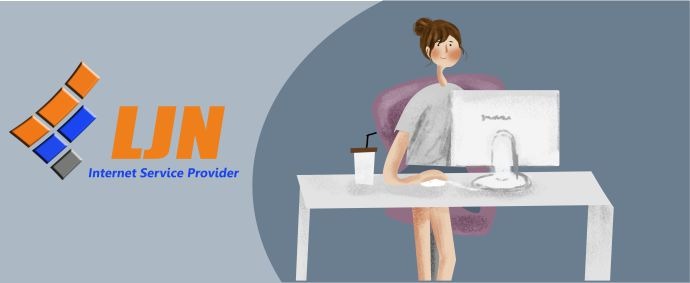Are you looking for a quality ISP in Bekasi but unsure how to choose or what you need to prepare when subscribing to an internet service provider (ISP)? This website provides detailed information on everything you need.
What is an ISP?
An ISP (Internet Service Provider) in Bekasi is a company that provides internet services. The ISP sells internet bandwidth for various customers, including businesses and individuals.
ISP Functions and Types Based on User Needs:
1. Hosting ISP
In this function, the internet service provider offers everything necessary for websites and internet access for large companies. Some examples of hosting ISP services include email, web hosting, and online data storage (backup storage). There are also other services such as virtual servers, cloud-based internet services, and physical server operations. Visit here for reliable hosting services!
2. Access ISP Providers
An ISP company doesn’t just offer hosting services; it also provides internet hardware devices. For instance, the provider supplies equipment like ADSL cables, ISDN, fiber optics, and Ethernet metropolitan connections (also known as Metro-E). Media companies often use this type of ISP service.
Types of ISP Services:
1. Dial-Up Connection
This is one of the most commonly used internet access services in Indonesia, especially for small to medium-sized businesses such as internet cafes. With dial-up, customers are not charged continuously but only when connected to the internet. Dial-up connections usually require a modem or a phone line to access the internet.
2. Dedicated Connection
This service is also popular because it provides continuous internet access, allowing users to stay connected 24/7. Companies that usually use this service include hospitals and public service organizations where there are many employees and heavy computer usage.
3. Internet Hotspot
Unlike dial-up, internet hotspots do not require cables to connect to the internet. Hotspots are commonly found in public areas such as cafes, airports, city parks, coworking spaces, and other public places.
4. Wireless Internet
Similar to hotspots, wireless internet doesn’t require cables to connect to the network. Additionally, there are no phone charges; users are usually only charged for the internet usage, making it a cheaper and more economical option.
5. Mobile Access Internet
The last type is mobile access internet, which is specifically used for mobile or smartphone users. Generally, mobile access internet comes in various types, such as GSM, CDMA, 3G, 4G, and now 5G.
How Does an ISP Work?
The way an ISP works is relatively simple. Once a user requests access, the ISP routes the network to the user’s device, such as a smartphone, modem, or any other device used to access the internet.
Location is an important factor because it can significantly impact connection speed and the service quality, especially when experiencing network disruptions. Lintas Jaringan Nusantara (LJN) has expanded to various cities like Bekasi, Karawang, Indramayu, Garut, Semarang, Ambarawa, Malang, Kediri, Tabanan, and several cities outside Java such as Batam, Lampung, Riau, Aceh, West Kalimantan (Kalbar), Central Kalimantan (Kalteng), Central Sulawesi (Sulteng), Minahasa, Palu, and more. You can check the coverage area on Lintas Jaringan Nusantara.
Tips for Choosing the Right ISP in Bekasi:
- Check the Price
Make sure the price of the internet service matches what is offered and compare it with other providers. A cheap price doesn’t always guarantee good quality, so make sure to check the comparison carefully. - Check Technical Specifications
Look at the internet speed, data quota/bandwidth, and other features that suit your needs. You can check your internet speed here (insert speed test link). - Choose an ISP with a Good Track Record
Look for an ISP that has a solid service history and a 24/7 support team to address customer complaints and find the best solutions. - Check for Backup Network
Ensure the ISP has a strong backbone network, so if the primary connection faces downtime, the backup network can maintain a stable internet connection. - Check for Official Licensing
Choose an ISP with official government licenses to reduce the likelihood of downtime caused by the ISP being shut down by authorities. - Look for SLA (Service Level Agreement)
Check if the ISP offers an SLA (Service Level Agreement) to define the expected level of service, as well as mechanisms for complaints and restitution.
Common ISP Problems:
When using an internet service provider, various issues may arise. Some common problems experienced by ISP users include:
- Unable to access the internet even though the connection is active. This often results in slow internet speeds or complete disconnection.
- ISP access problems due to server downtime or sudden outages, often caused by unstable power supply.
- Network cables being disconnected or loose, or routers and modems losing access to the network.
- Wireless adapters fail to connect to the wireless network, usually due to server disruptions, downtime, or maintenance.
Troubleshooting ISP Issues:
To resolve internet service provider issues, follow these troubleshooting steps:
- Identify the Problem and Find a Solution
Most internet issues stem from technical errors with the device being used. Therefore, users should regularly check their devices for any issues. - Contact ISP Support
If the issue persists, contact the ISP support team, which should be available 24/7 to help resolve the problem. It’s a good idea to choose an ISP that offers 24/7 support to ensure fast resolution.




